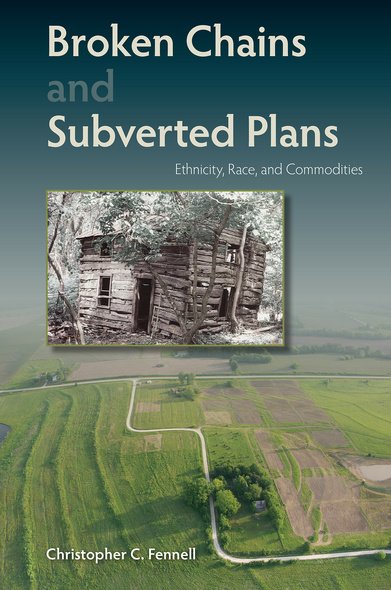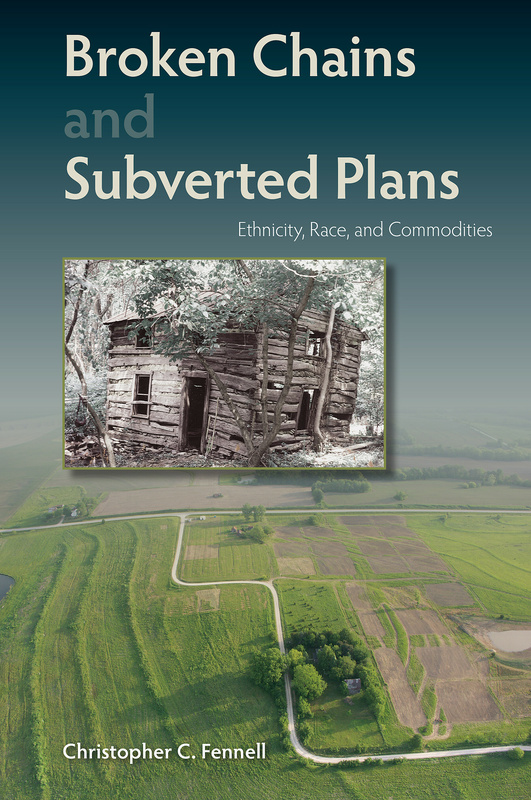
Broken Chains and Subverted Plans
Ethnicity, Race, and Commodities
“Creatively drawing on archaeological, architectural, and documentary evidence, this book explores the dynamic strategies employed by German Americans and African Americans in the nineteenth-century American frontier to navigate the exclusionary, exploitative, and insidious forces of the emerging world capitalist system.”—Frederick H. Smith, author of The Archaeology of Alcohol and Drinking
Using two case studies from different frontier regions in nineteenth-century America, this book reveals how marginalized ethnic and racial communities resisted the attempts of governing officials and investors to control them through capitalist economic and government frameworks.
In backcountry Virginia, immigrants from Germany opted to purchase ceramic wares produced by their own local communities instead of buying manufactured goods supplied by urban centers like Washington, D.C. In Illinois, free African Americans in the town of New Philadelphia worked to obtain land and produce agricultural commodities, defying structural racism that was meant to channel resources and economic value away from them. These small choices and actions had large ripple effects. Looking at the economic systems of these regions in relation to transatlantic and global factors, Christopher Fennell offers rare insight into the development of America’s consumer economy.
Makes a compelling case for systematic racism being a motivating factor in roadways and railroads being diverted away from African American settlements.'—Historical Archaeology 'Fennell acknowledges that broad systems of economic domination and xenophobia shaped Americans’ lives since the eighteenth century, but he persistently frames agency as an expression of local social and ethnic identity rather than a reflection of systemic domination. . . . The central threads of Broken Chains and Subverted Plans defend ethnic and social collectivity, persistently championing the everyday agency of local collectives of people sharing some heritage.'—Journal of Anthropological Research ‘A fascinating look into methods by which 19th-century ethnic groups were able to direct their economic power into their communities, and, in the face of often great racial hostility, also manage to take advantage of the broader capitalistic opportunities surrounding them.’—Anthropology Book Forum
Creatively drawing on archaeological, architectural, and documentary evidence, this book explores the dynamic strategies employed by German Americans and African Americans in the nineteenth-century American frontier to navigate the exclusionary, exploitative, and insidious forces of the emerging world capitalist system.'—Frederick H. Smith, author of The Archaeology of Alcohol and Drinking 'Two in-depth and insightful case studies investigating how historical archaeologists can contribute to the current dialogues about self-determination and the subversion of elite designs. Timely and important, this book furthers the cause of socially conscious archaeology.'—Charles E. Orser Jr., author of The Archaeology of Race and Racialization in Historic America
Christopher C. Fennell, professor of anthropology at the University of Illinois at Urbana-Champaign, is the author of the award-winning Crossroads and Cosmologies: Diasporas and Ethnogenesis in the New World.




